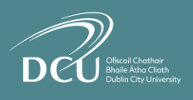About Msc In Public Policy in Dublin City University
Why Do This Programme?
- Join the growing number of professional policy specialists working directly for state, national and international organisations; or serve as a policy specialist in a private sector with an increasing need to be informed in public policy.
- Become a policymaker or an informed actor in the policymaking system by developing skills and knowledge in quantitative methods, policy design and implementation, research design, communications skills, law, and policy analysis.
- Increase your expertise in specific policy areas.
- Gain real-world experience of policymaking in a variety of fields through the internship component.
- Build relationships and contacts with colleagues from a variety of backgrounds, a range of specialists and policymakers that will give you a head start as you build your career.
Careers
The MSc in Public Policy’s range of modules equips participants with a range of social science skills, such as quantitative analysis, research design, economics and communications methods to develop, analyse, evaluate and communicate public policies. These have been carefully chosen, in consultation with key stakeholders such as senior civil servants and ministers, so that graduates of the programme are in position to become leaders in policymaking.
The programme is capped with an innovative internship on which the dissertation will be based. The internship gives participants the chance to work as a consultant and as part of a team that provides advice to a number of public organisations.
Potential Careers
Policy Advisor
Policy Maker
Public Servant
Communications Consultant
Academic qualification equivalents
- Typically, you need a First Class Bachelor’s degree from a recognised top ranked university and/or affiliated colleges with a minimum of 60% average across all semesters. Students who have studied at a lower tiered institution may be considered with an overall average mark of 65% or above.
English language requirements (one of the below):
- IELTS for Postgraduate Taught Programmes: Overall score of 6.5 or above, with no less than 6.0 in any one skill. Additionally DCUBS require 6.5 in Speaking and Writing.
- TOEFL: Total Score of 92. DCU Business School additionally requires all section scores 21 or above.
- PTE Academic: Minimum score of 63, with no section score below 59
Dublin City University Highlights
| University Type |
Public University |
| Campus Setting |
Urban |
| Establishment Year |
1975 |
| No. of Campuses |
3 |
| No. of Residence Halls |
3 |
| International students |
2,337
71% in UG, 29% in PG courses |
| Research Funding |
~35 million EUR |
| Cost of Attendance |
~22,500 EUR |
| Applications Accepted |
Online/Offline |
| Work-Study |
Available |
| Intake Type |
Semester wise |
| Mode of Program |
Full time and online |
Dublin City University Average Tution fees And Other Expenses
Foreign students who wish to enrol at Dublin City University must be aware of the associated costs in order to budget appropriately and apply for scholarships when needed. The tuition costs for well-known programmes and other expenses related to studying in Ireland are covered below.
Tuition Fee for Dublin City University
Here are the details of the UG and PG fees for international students planning to study at any of the following faculties.
| Programs |
UG (EUR) |
PG (EUR) |
| Engineering |
15,000 |
17,000 |
| Business |
14,000 |
16,000-19,000 |
| Humanities |
15,000 |
15,000 |
| Science |
15,000 |
15,000 |
| Education |
12,600 |
13,700 |
Dublin City University Cost of Living
The cost of living here includes monthly expenses an international student would require to study at Dublin City University:
| Expense |
Monthly Cost (EUR) |
| Rent (On-campus) |
692-1216 |
| Rent (Off-campus) |
850-1300 |
| Food |
250 |
| Travel |
132 |
| Books and Materials |
75 |
| Medical |
45 |
| Miscellaneous |
178 |
| Total |
Approximately 2,222 |
